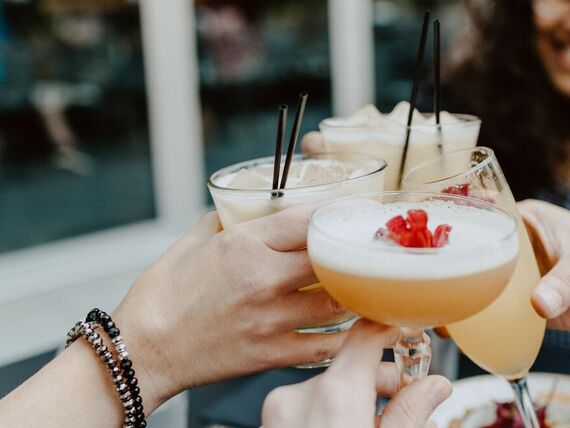Time to weigh up our own healthy future
Unless we change our own bad eating and lifestyle habits, no amount of government funding will fix our over-loaded hospitals.

Health: it is such a short word and everybody seems to talk about it, but what are we prepared to do for it?
We have a Public Health System – but the money that it distributes seems to get used primarily in the management of disease and not in preserving or creating health.

Apparently we need more super clinics and bigger hospitals to treat sick people – but are they all a lot healthier when they get sent home?
Is our 70 year old overweight diabetic patient "healthy" after he gets a new hip? Hardly.
So why don’t we all take a step back and look at what we can do for our health, rather than what are simply doing against our diseases.
It is always easy to call out for more money and more services but we also have a responsibility for ourselves and society to preserve and restore our health in the first place.
Just imagine for a moment that everybody took more responsibility for their own personal health and our society and public health system were prepared to support and reward this effort.
The outcomes would be exceptional. Our emergency departments would be well prepared to see the genuine sick people in a timely manner and our fantastic and highly specialised hospital departments would not struggle to find a bed for the ones in need.
Too many resources are being wasted every day. Instead of increasing the resources, shouldn’t we reduce the waste?
Let’s take a look at our current situation.
Many people choose to eat fast food and highly processed food and consume large amounts of soft drinks along the way.
They choose to smoke and drink or sit around watching TV and playing computer games for hours on end. They often choose to be sleep deprived by going to bed late.

By doing all or a combination of the above they are not only missing out on the health effects of vitamins, minerals and aerobic exercise - the fundamental essentials that our body needs to stay in balance - but they also expose themselves to lots of nutritional and environmental toxins.
It is no secret that preservatives and artificial colours and flavours are bad for your health and the hazards from tobacco smoke and alcohol are more than well established and can safely be assumed to be common knowledge.
A body treated this carelessly will struggle with its immune system and will slowly show signs of organ damage.
Your liver gets fatty first, then cirrhotic. Your blood vessels slowly clog up... then give up.
Our bodies are amazing systems – they let us know when something is not right. They send us headaches after a long night out with friends and too many drinks, they give us heartburn and stomach pain after the fish and chips or roast with too much gravy followed by dessert.
But instead of taking these signals for what they are we’d rather take some pills than change our habits.
And if the pills from the supermarket don’t work any more we see the GP to get some better pills (with the added benefit of a script which then often ends up cheaper. What a bonus).
If all else fails and we keep ignoring the symptoms we present to the emergency department. The gallbladder might be taken out in the end – but have we gained health? Of course not.
Do we really think the answer is providing more hospital beds or shouldn’t we finally learn to make better choices?
Politicians often "defend" some groups of their voters, implying they are disadvantaged and cannot afford a healthier lifestyle. Luckily I am not a political person and it is my opinion that the vast majority of Australians have got a choice.

Everybody can choose not to drink alcohol, not to buy soft drinks but rather water, and not to smoke.
Everybody has got the choice to be active; walking is free, floor exercises are free, swimming doesn’t cost a lot and many communities are running free outdoor classes.
If you don’t use your money for cigarettes, alcohol and convenience food you will have enough money to buy the fresh, local vegetables for your 5 serves per day.
If you don’t spend your free time in front of the TV or computer you find the time to go shopping and cook. It is about learning to prioritise and appreciate your physical and mental health, and not taking it for granted.
Good health is not something you can expect to last if you are not committed to work for it.
And there is no replacement for it either – we need to learn that if we choose to jeopardise our health willingly we cannot expect any external intervention or adding a pill to solve the problem for us.
To adapt healthier lifestyle choices is not a matter of money, it is about CHOOSING IT IN THE FIRST PLACE.
It would be helpful if the Public Health System would have the courage and intelligence to invest more money into encouraging people to take responsibility and to support preventative activities rather than funding more projects to manage the disease burden.
Most young people today grow up without the inert knowledge of our grandparents’ generation of treating common ailments at home with simple remedies.
We have developed an overreliance on pharmaceutical products and external advise. We have distanced ourselves from our bodies and our physical and mental health and are outsourcing its management.
Politicians – in order to please voters – are often supporting this path. It will be a dead end.
I think it is time to regain responsibility for our personal health.
A healthy lifestyle needs to be simple and affordable, it needs to fit in your personal situation and needs to make you feel good in the end.
I believe this is possible if we go back to the basics, applying common sense and listening to our bodies.
Over coming months, Dr Alex Bernhardi will present a series of articles highlighting a variety of common health conditions and what we can do to avoid or to treat them with simple interventions.







